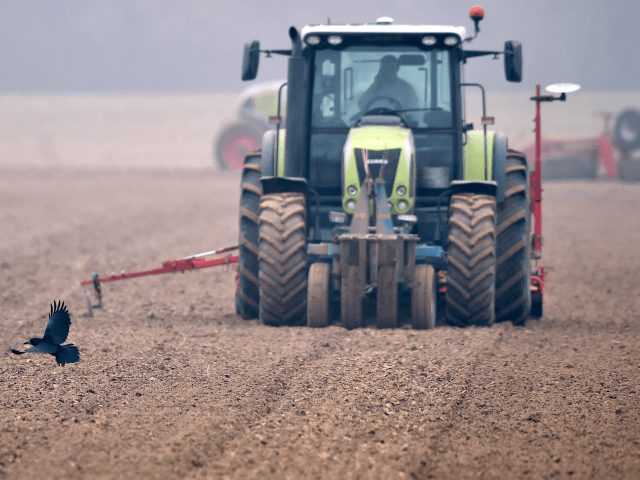American farmers are turning to YouTube in growing numbers to supplement their income as making a living through agriculture and livestock is becoming increasingly difficult, according to a new report.
Wired reported that agrarian-related content is growing on YouTube, with creators uploading 61 percent more farming-related videos compared to last year. Views of farming content are also up, climbing 69 percent from last year.
These videos typically document the farming life with on-the-ground intimacy, detailing the everyday aspects of growing crops and raising livestock. The videos offer urbanites and suburbanites a glimpse into a different lifestyle as well as how-to instructions on exotic activities like driving a tractor and hauling bales of hay.
Farmers earn money from the advertising that appears on their videos. One farmer interviewed by Wired created a YouTube account last year and has garnered 30,000 followers. The farmer said he earned roughly $650 from YouTube advertisements in one recent month.
Another farmer told the magazine that videos generate between $2,000 and $3,000 in advertising per month.
Wired noted that U.S. farmers face increasingly dire economic circumstances. The number of farms in the U.S. is on the decline, according to the Department of Agriculture. The USDA found there were 2.04 million farms and ranches in the U.S. in 2017, down more than 3 percent from 2012.
Some of this is due to the consolidation of farms in order to create even bigger operations that engage in industrial agricultural activity.
The average farm income was just $43,053 in 2017, and less than half of farms reported positive net cash, according to data from the USDA.
As a result, Google’s YouTube has become a welcome source of revenue for farmers trying to make ends meet. But some farmers told Wired they have been hurt by YouTube’s “Adpocalypse” in 2017, and more recent advertising changes that resulted in many channels being demonetized or blocked from earning ad revenue.
One former farmer who turned to online content production told the magazine that his income from YouTube was reduced by at least two-thirds following YouTube’s change of policy.
“To be a YouTuber on your own, you kind of pigeonhole yourself. You make yourself vulnerable if they change an algorithm,” he said.
Follow David Ng on Twitter @HeyItsDavidNg. Have a tip? Contact me at dng@breitbart.com

COMMENTS
Please let us know if you're having issues with commenting.